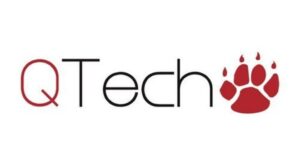Key Moments:
- The Isle of Man has elevated its banking sector money laundering risk from medium to medium-high in its latest assessment.
- Cross-border transactions and use of virtual assets, especially USDT, are highlighted as key risk drivers linked to the gambling sector.
- The Gambling Supervision Commission emphasized the importance of enhanced due diligence for high-risk clients and ongoing monitoring.
Banking Sector Risk Assessment Highlights
The Isle of Man Government has released its new Money Laundering Risk Assessment for the Banking Sector, which forms part of the National Financial Crime Strategy 2024–2026. According to the report, the overall risk rating has been lifted from medium to medium-high due to increased cross-border money movements and evolving financial technologies. Banks based on the island are responsible for managing over £40 billion in deposits and processing close to £80 billion in payments annually, contributing approximately 7.6% to the total national income.
Threats to Financial Integrity and Gambling Connections
The assessment spotlights a series of threats, including a persistent uptick in cyber-enabled crime, wider usage of digital assets such as USDT, and intensified operations by organized crime groups connected to Asia and the UK. It further notes specific red flags for both banking and gambling, citing examples such as several unrelated people registered at a single address, which could indicate human trafficking activity.
| Key Risk Indicators | Affected Area |
|---|---|
| Higher transaction volumes for new businesses | Banking & Gambling |
| Complex cross-border company structures | Banking & Gambling |
| Ties to high-risk jurisdictions | Banking & Gambling |
| Clusters of unrelated individuals at one address | Human Trafficking, Banking & Gambling |
Emphasis on Oversight and Enhanced Due Diligence
The report details ongoing gaps in monitoring systems across banks, notably lapses in identifying changes in customer behavior or transaction patterns. The Gambling Supervision Commission has underlined the necessity for enhanced due diligence procedures for high-risk clients and politically exposed persons, alongside requirements to trace sources of wealth and maintain thorough, ongoing client surveillance.
- Enhanced due diligence for high-risk clients and politically exposed persons (PEPs)
- Confirmation of clear sources for wealth and funds
- Consistent transaction monitoring and red flag identification
Plans for Regulatory Strengthening
The GSC has brought renewed focus to issues related to human trafficking and bribery, urging industry operators to be vigilant for signs of coercion and to consider any negative news concerning corruption when evaluating client relationships. Moving forward, the Commission plans to coordinate with government agencies to enhance compliance requirements and support the broader campaign against financial crime across the Isle of Man.
- Author


